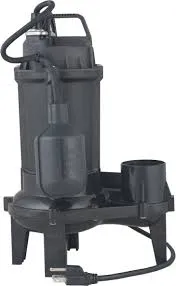Yoruba
- Afrikaans
- Albanian
- Amharic
- Arabic
- Armenian
- Azerbaijani
- Basque
- Belarusian
- Bengali
- Bosnian
- Bulgarian
- Catalan
- Cebuano
- Corsican
- Croatian
- Czech
- Danish
- Dutch
- English
- Esperanto
- Estonian
- Finnish
- French
- Frisian
- Galician
- Georgian
- German
- Greek
- Gujarati
- Haitian Creole
- hausa
- hawaiian
- Hebrew
- Hindi
- Miao
- Hungarian
- Icelandic
- igbo
- Indonesian
- irish
- Italian
- Japanese
- Javanese
- Kannada
- kazakh
- Khmer
- Rwandese
- Korean
- Kurdish
- Kyrgyz
- Lao
- Latin
- Latvian
- Lithuanian
- Luxembourgish
- Macedonian
- Malgashi
- Malay
- Malayalam
- Maltese
- Maori
- Marathi
- Mongolian
- Myanmar
- Nepali
- Norwegian
- Norwegian
- Occitan
- Pashto
- Persian
- Polish
- Portuguese
- Punjabi
- Romanian
- Russian
- Samoan
- Scottish Gaelic
- Serbian
- Sesotho
- Shona
- Sindhi
- Sinhala
- Slovak
- Slovenian
- Somali
- Spanish
- Sundanese
- Swahili
- Swedish
- Tagalog
- Tajik
- Tamil
- Tatar
- Telugu
- Thai
- Turkish
- Turkmen
- Ukrainian
- Urdu
- Uighur
- Uzbek
- Vietnamese
- Welsh
- Bantu
- Yiddish
- Yoruba
- Zulu
Telephone: +86 13120555503
Email: frank@cypump.com
Sep . 01, 2024 12:25 Back to list
oem slurry pumps
Understanding OEM Slurry Pumps Their Importance and Functionality
Slurry pumps, essential equipment in many industrial applications, are specifically designed to transport abrasive and viscous mixtures. These mixtures, known as slurries, can contain solids suspended in liquid, such as mud, ash, sand, and other materials. The reliability and efficiency of these pumps are critical, particularly in sectors like mining, construction, and wastewater treatment. Original Equipment Manufacturers (OEMs) specialize in creating these pumps tailored to specific needs and conditions.
The Role of OEMs in Slurry Pumps
OEMs play a vital role in the slurry pump industry by providing customized solutions that enhance performance for varying operational requirements. Unlike generic pumps, OEM slurry pumps are designed with particular attention to the unique characteristics of the slurry they handle. This often includes considerations for viscosity, particle size, and the aggressiveness of the materials. OEMs have the ability to design pumps with various configurations and materials, ensuring durability and longevity under challenging conditions.
Key Features of OEM Slurry Pumps
1. Material Selection OEMs can select materials that resist wear and corrosion, such as high-chrome alloy, rubber linings, or stainless steel. These materials are crucial in prolonging the life of the pump, which is essential in harsh environments.
2. Pump Design Advances in pump design enable OEMs to optimize hydraulic performance. Features such as adjustable impellers and volutes can be tailored to improve efficiency based on the flow characteristics of the slurry, ensuring that pumps perform optimally even under challenging conditions.
oem slurry pumps

3. Sealing Technologies The sealing system is crucial in preventing leakage, which can lead to environmental hazards and increased maintenance costs. OEMs can integrate advanced sealing technologies that cater to specific operational needs, enhancing overall pump reliability.
4. Maintenance and Support OEMs often provide ongoing support, including maintenance services, which can be tailored to the operational schedule of the equipment. This not only helps in keeping the pump functioning at its best but also extends its lifespan.
Applications Across Industries
OEM slurry pumps find applications across various industries. In the mining industry, they are used to transport mineral slurries, tailings, and other materials. In the construction sector, they handle cement slurries and slurry mixtures in tunneling projects. Moreover, in wastewater treatment, these pumps are essential for transferring sludge and other solid-liquid mixtures. Each application requires a different pump specification, which OEMs can provide through customized solutions.
The Future of OEM Slurry Pumps
As industries evolve and face increasing challenges, the demand for efficient and durable slurry pumps will continue to grow. The rise of automation and sensor technology is also expected to influence the design and operation of OEM slurry pumps. Enhanced monitoring technologies, coupled with AI and machine learning, can lead to predictive maintenance strategies, ensuring optimal pump performance with minimal downtime.
In conclusion, OEM slurry pumps are indispensable in transporting challenging materials across various industries. Their customized design, material selection, and advanced technological integration contribute to improved efficiency and reliability. As sectors continue to innovate, the role of OEMs in providing tailored solutions will only become more significant, paving the way for more efficient industrial processes.
-
Custom Drilling Mud and Slurry Pump Supplier - High Efficiency, Tailored Solutions
NewsJun.10,2025
-
Supply Vertical Submersible Sewage Pump High-Efficiency WQ/QW Pumps Supplier
NewsJun.10,2025
-
Premium Sewage Ejection System & Pumps Efficient Waste Removal
NewsJun.09,2025
-
Premium Wholesale Slurry Pump Impellers Durable & Efficient Slurry Handling
NewsJun.09,2025
-
Top Sewage Pump Companies Durable Industrial Solutions for Efficiency
NewsJun.09,2025
-
Heavy Duty Slurry Pumps - OEM High Performance & Bulk Wholesale
NewsJun.09,2025










